By Jill Fioravanti and Rebecca Trout
History has shown that during periods of great difficulty the human spirit exhibits great resolve and ingenuity, often discovering effective solutions that endure even after a crisis has passed. The response to learning loss caused by the pandemic is no exception. The Campaign for Grade-Level Reading (CGLR) and the National Civic League teamed up to find and recognize these community solutions, innovations, bright spots, and silver linings through the 2022 All-America City (AAC 2022) Award.
Early in the pandemic, it was clear that disruptions to learning had the potential to cause significant learning loss. Two years later, it’s clear that early education professionals were right to worry; according to a recent study by the National Center for Education Statistics, reading and math scores saw their largest decrease in 30 years between 2020 and 2022, with reading scores falling by five points and students of color faring even worse. The study noted, “The declines hit all regions of the country and affected students of most races. But students of color saw some of the steepest decreases, widening the racial achievement gap.”1 Left unattended, learning loss of this scale and magnitude could further compromise the prospects for a generation of children whose future already is at risk.
Public housing and affordable housing (PHAs) programs are high-potential platforms for regaining momentum for early school success and for accelerating equitable learning recovery. PHAs and affordable housing organizations can serve as focal points that bring together public, corporate and community-level stakeholders to support children, adults and families using a system of 24/7/365 wraparound services and supports and a two-generation approach. As such, housing organizations are mission-critical partners as communities across the country work toward a full and equitable recovery for all their members, especially those most vulnerable, and developments built and/or managed by PHAs, and affordable housing organizations serve as a physical asset that can be leveraged to support individual, family and community well-being.
With this year’s theme, “Housing as a Platform to Promote Early School Success and Equitable Learning Recovery,” CGLR and the National Civic League leveraged the national reach and 73-year history of the All-America City Award with an opportunity to galvanize and mobilize communities across the country 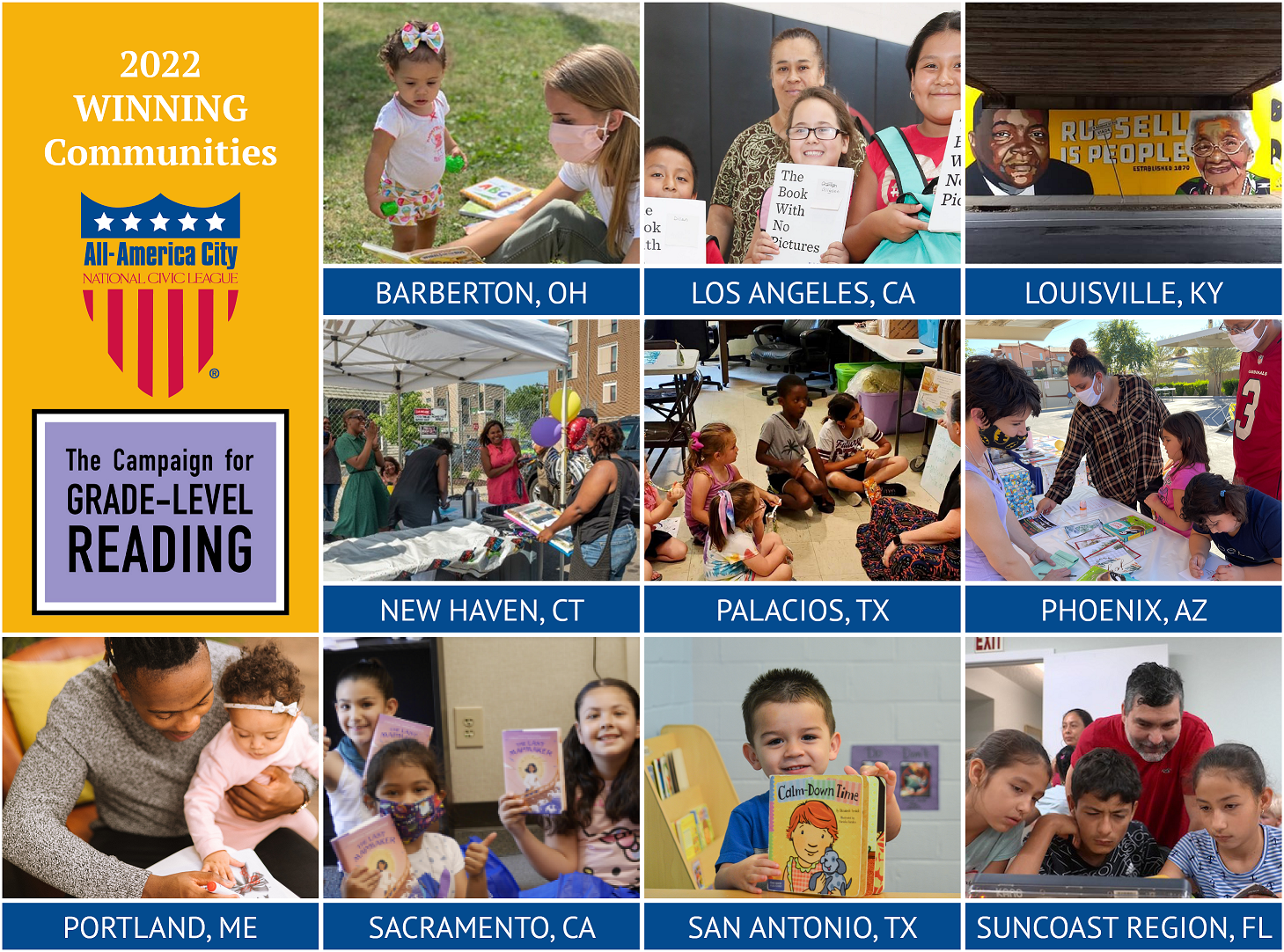 around the ability for public and affordable housing to serve as a conduit for cross-sector systems and supports for economically disadvantaged and marginalized children and families. The goal was twofold: to recognize promising practices and to share those successes so that others might implement them and benefit. In March, 20 communities were designated as finalists for the award based on robust written applications. In July, after months of preparation, All-America City Award finalists each provided a virtual community presentation to an 11-member jury, who then selected the 10 winners.
around the ability for public and affordable housing to serve as a conduit for cross-sector systems and supports for economically disadvantaged and marginalized children and families. The goal was twofold: to recognize promising practices and to share those successes so that others might implement them and benefit. In March, 20 communities were designated as finalists for the award based on robust written applications. In July, after months of preparation, All-America City Award finalists each provided a virtual community presentation to an 11-member jury, who then selected the 10 winners.
Projects and initiatives of the 10 winning communities and their housing partners spanned seven areas of focus. Below is an overview of each of the seven focus areas and a brief profile of standout efforts across the 10 winning communities.
Digital Equity
Background: Broadband internet access is essential for anyone to fully participate in today’s society. This is especially true for low-income families who are without affordable, reliable, and quality internet options. Additionally, securing the right device for one’s needs and developing the digital literacy skills to use technology effectively are critically important supports in ensuring equitable recovery.
Digital equity is at the forefront of CGLR’s work around learning loss recovery and is a key theme of weekly CGLR Learning and Engagement Opportunities (LEO) webinars. The Suncoast Campaign for Grade-Level Reading, recognized as both a 2021–2022 Pacesetter and a 2022 All-America City, has served as a lead presenter on this topic, including LEO webinars on July 28, 2021, and July 20, 2022.
Spotlight: Los Angeles, California
At the beginning of the pandemic, many young people living in Housing Authority of the City of Los Angeles (HACLA) communities faced difficulties engaging in virtual learning due to a lack of technology and digital infrastructure. Internet service provider, Starry Internet, committed to providing six months of free service for residents to help ensure learning continuity for HACLA’s Los Angeles Unified School District students, who at the time had all transitioned to remote learning. Today, Starry’s broadband service is available at no or low cost to more than 5,000 households across 10 HACLA communities. HACLA committed to conducting community outreach and engagement to encourage uptake of this opportunity. To date, there is a 54 percent adoption rate at all housing sites, with some sites as high as 72 percent. HACLA, in partnership with the Los Angeles Mayor’s Office, is raising additional capital to invest in the transformation of 13 computer labs so that the spaces can have upgraded equipment and new furniture along with digital literacy, academic and workforce development programming.
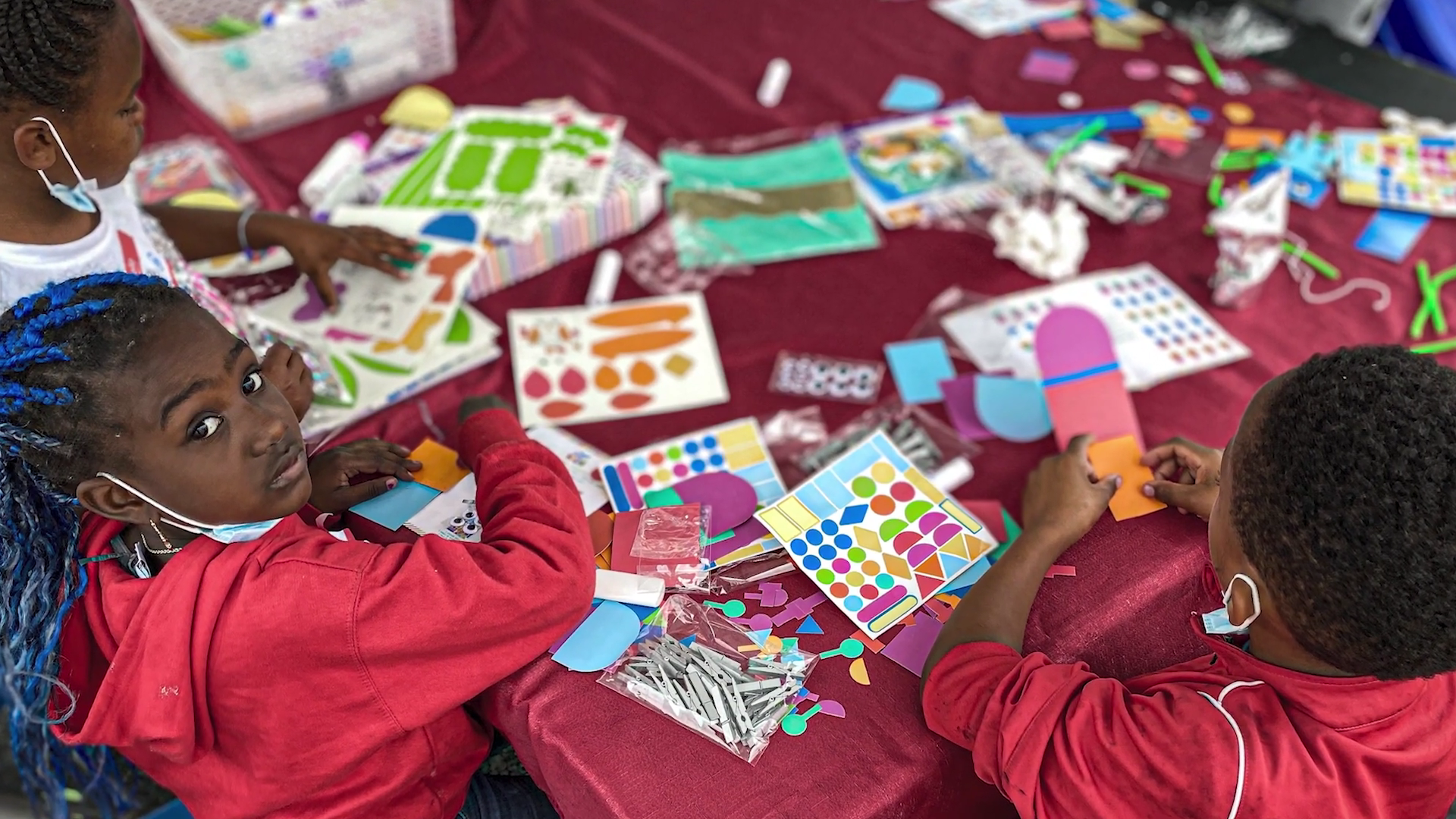 Recognizing that bridging the digital divide requires more than internet access, HACLA recruited youth leaders to serve as digital ambassadors. Digital ambassadors assist with educating families on Starry Internet, co-host COVID-19 educational workshops, help people with accessing telehealth resources, and train residents on how to navigate software and internet resources. HACLA also worked with partners to establish no-cost learning pods to help younger children navigate their lesson plans while their parents worked or when adults were uncomfortable navigating digital lessons on behalf of their children.
Recognizing that bridging the digital divide requires more than internet access, HACLA recruited youth leaders to serve as digital ambassadors. Digital ambassadors assist with educating families on Starry Internet, co-host COVID-19 educational workshops, help people with accessing telehealth resources, and train residents on how to navigate software and internet resources. HACLA also worked with partners to establish no-cost learning pods to help younger children navigate their lesson plans while their parents worked or when adults were uncomfortable navigating digital lessons on behalf of their children.
Spotlight: Phoenix, Arizona
Many families in Phoenix lack the capabilities to fully utilize technology to support a quality education. As COVID-19 suddenly shifted education from traditional classrooms to home-based learning, the pandemic exacerbated the digital divide across Phoenix.
In response to this challenge, the City of Phoenix partnered with T-Mobile to distribute over 800 tablets to families living in public housing and provided educational enrichment and digital literacy training to more than 1,800 people. To complement these efforts, the city partnered with School Connect and Scottsdale Bible Church to use more than $3.5 million to purchase more than 12,000 laptops for public housing residents.
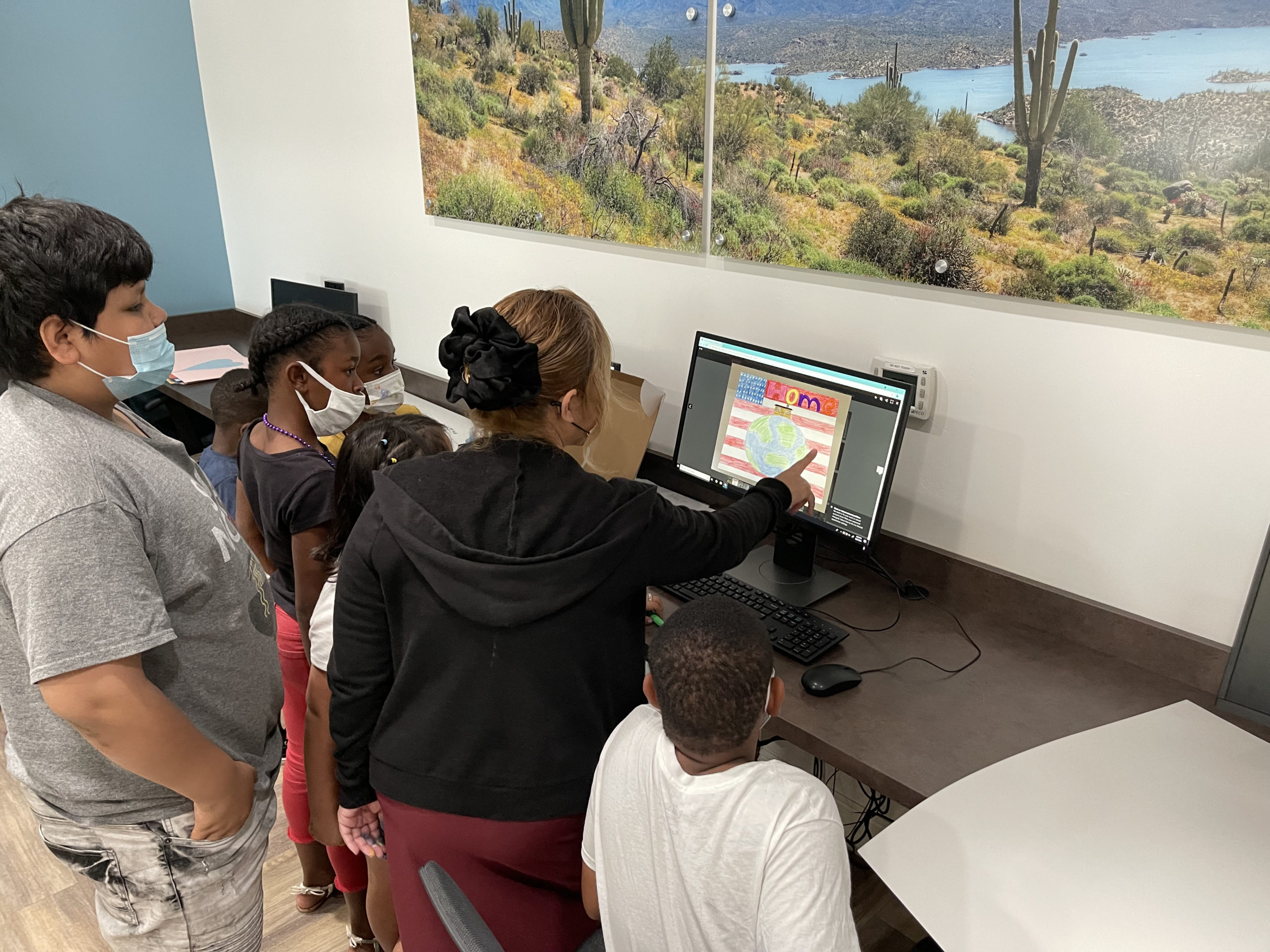 Additionally, the Phoenix Digital Education Connection Canopy (PDECC) brought together school districts and community colleges to increase broadband internet access in areas where the need was the greatest. PDECC now supports a four-square-mile area with nearly 1,000 students participating in online learning and technical support available seven days a week. Given its success, PDECC anticipates expansion throughout Phoenix to deliver high-speed internet to over 350,000 families. The city also invested in maximizing Wi-Fi access, along with Wi-Fi hotspot lending programs that serve hundreds of families in public housing.
Additionally, the Phoenix Digital Education Connection Canopy (PDECC) brought together school districts and community colleges to increase broadband internet access in areas where the need was the greatest. PDECC now supports a four-square-mile area with nearly 1,000 students participating in online learning and technical support available seven days a week. Given its success, PDECC anticipates expansion throughout Phoenix to deliver high-speed internet to over 350,000 families. The city also invested in maximizing Wi-Fi access, along with Wi-Fi hotspot lending programs that serve hundreds of families in public housing.
Sylvia Bernal, Principal of Garfield Elementary School, had this to say about Phoenix’s digital equity supports: “This combination of efforts … are the trifecta of support our students and families critically need. It puts our students at a distinct advantage when they are able to access these services.”
Relational Supports
Background: Equitable recovery cannot occur in isolation. Relational supports include programs designed to foster individual growth and recovery, parent and family success, youth and young adult development and any other project with the goal of providing 1:1 supports through long-term relationships and interventions. Supports include but are not limited to tutors, mentors, coaches and peer programs.
Spotlight: New Haven, Connecticut
Like so many other places, New Haven is a city of haves and have-nots, resulting in educational disparities particularly for people of color and economically marginalized and disadvantaged households. To close this gap and provide educational support to students and families living in PHA properties, Elm City Communities/Housing Authority of New Haven launched the Elm City Communities (ECC) Believes Initiative. Through the development of community collaborations, ECC Believes offers an array of services to residents that enhance learning and academic opportunities for students and their families.
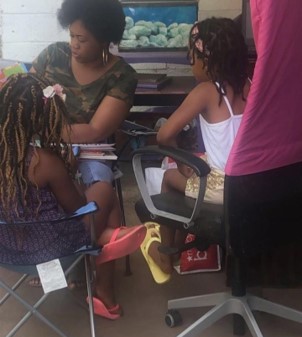 In response to the COVID-19 pandemic, the ECC Believes Initiative adopted a more holistic wraparound approach to fill the gaps left by schools and other partner organizations that either shut down or significantly decreased operations. The Teacher in Residence (TIR) program houses a New Haven Public Schools (NHPS) teacher within developments in exchange for on-site homework help and tutorial services. Youth participants can meet with the teacher daily for assistance and are equipped with tablets that have learning platforms. During the pandemic, the teacher met with students and mitigated the impact of remote schooling. The TIR helped 90% of enrolled kids increase at least one reading level and 75% increase at least one math level.
In response to the COVID-19 pandemic, the ECC Believes Initiative adopted a more holistic wraparound approach to fill the gaps left by schools and other partner organizations that either shut down or significantly decreased operations. The Teacher in Residence (TIR) program houses a New Haven Public Schools (NHPS) teacher within developments in exchange for on-site homework help and tutorial services. Youth participants can meet with the teacher daily for assistance and are equipped with tablets that have learning platforms. During the pandemic, the teacher met with students and mitigated the impact of remote schooling. The TIR helped 90% of enrolled kids increase at least one reading level and 75% increase at least one math level.
After-School, Summer and Out-of-School Learning Opportunities
Background: Making every day a learning day by creating out-of-school learning opportunities and other innovative solutions not limited to the classroom is essential in today’s pandemic-altered school environment. Solutions include: educational content disseminated in new or innovative ways, such as through broadcast media; alternative learning locations that provide a safe and nurturing space for both children and adults; innovative summer learning programs; and an affirmative embrace of the use of technology to enable, enhance and facilitate learning within and outside of the traditional classroom setting.
Spotlight: Sacramento, California
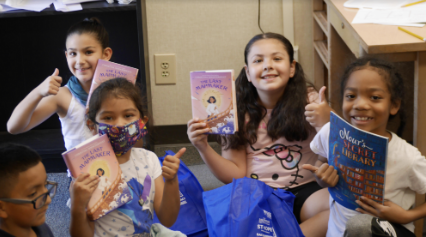 In 2015, Sacramento was awarded a Promise Zone designation by the U.S. Department of Housing and Urban Development under the umbrella of its public housing agency, the Sacramento Redevelopment and Housing Agency (SHRA). Sacramento’s Promise Zone Literacy Initiative, a collaboration between the Sacramento Literacy Foundation and the Promise Zone (PZ), has a goal for all children who live in the PZ to read at grade level. The PZ Literacy Initiative also supports various out-of-school, after-school and summer reading programs to combat any reading slide that might take place when students are disconnected from opportunities to learn. Several of these programs found new solutions during the pandemic. Literacy data gathered for the 2019–2020 school year shows that 14,000 children were served in new and creative ways through out-of-school learning programs. Highlights from a suite of programs and services include:
In 2015, Sacramento was awarded a Promise Zone designation by the U.S. Department of Housing and Urban Development under the umbrella of its public housing agency, the Sacramento Redevelopment and Housing Agency (SHRA). Sacramento’s Promise Zone Literacy Initiative, a collaboration between the Sacramento Literacy Foundation and the Promise Zone (PZ), has a goal for all children who live in the PZ to read at grade level. The PZ Literacy Initiative also supports various out-of-school, after-school and summer reading programs to combat any reading slide that might take place when students are disconnected from opportunities to learn. Several of these programs found new solutions during the pandemic. Literacy data gathered for the 2019–2020 school year shows that 14,000 children were served in new and creative ways through out-of-school learning programs. Highlights from a suite of programs and services include:
- One of 916 Ink’s core programs, “Read On!” provides students grades 1–4 with evidence-based one-to-one tutoring using Lightning Squad, an online reading/tutoring program. Students receive direct evidence-based instruction, and the Sacramento Literacy Foundation mails each participant a book after each month of participation.
- The Center provides expanded learning programs that engage K–12 grade students in grade-level reading activities at 85 schools across five school districts. Programs provide mentors and coaches to facilitate daily supports for students in high-risk areas during the traditional school year and over the summer.
- United Way California Capital Region (UWCCR) partners with BookNook to provide a virtual literacy tutoring program. UWCCR’s goal is to offer a free literacy program that helps students build phonics, vocabulary, comprehension and fluency skills. Tutors serve as mentors and improve the students’ confidence and participation in all school subjects.
Transforming Non-School Places and Spaces Into Learning-Rich Environments
Background: By age 3, children from low-income families are often well behind their more affluent peers in language and literacy skills, leading to gaps in school readiness by kindergarten and beyond. Addressing these gaps requires solutions that span into the informal places where families live, learn and play. Everyday spaces — laundromats, playgrounds, waiting rooms and others — can transform into literacy-rich environments with learning opportunities for families and young children.
Spotlight: Portland, Maine
Since 1992, Portland Housing Authority has operated four drop-in, after-school, academic programs called Study Centers in family public housing communities. The collective goal of the Study Centers is to help students become academically and socially successful. A long and ever-changing list of community partners support the programs and bring in a wide variety of resources and learning opportunities of their own. In addition to assisting students with homework, the Study Centers supplement their education through art projects, field trips, educational games, STEM programming and reading.
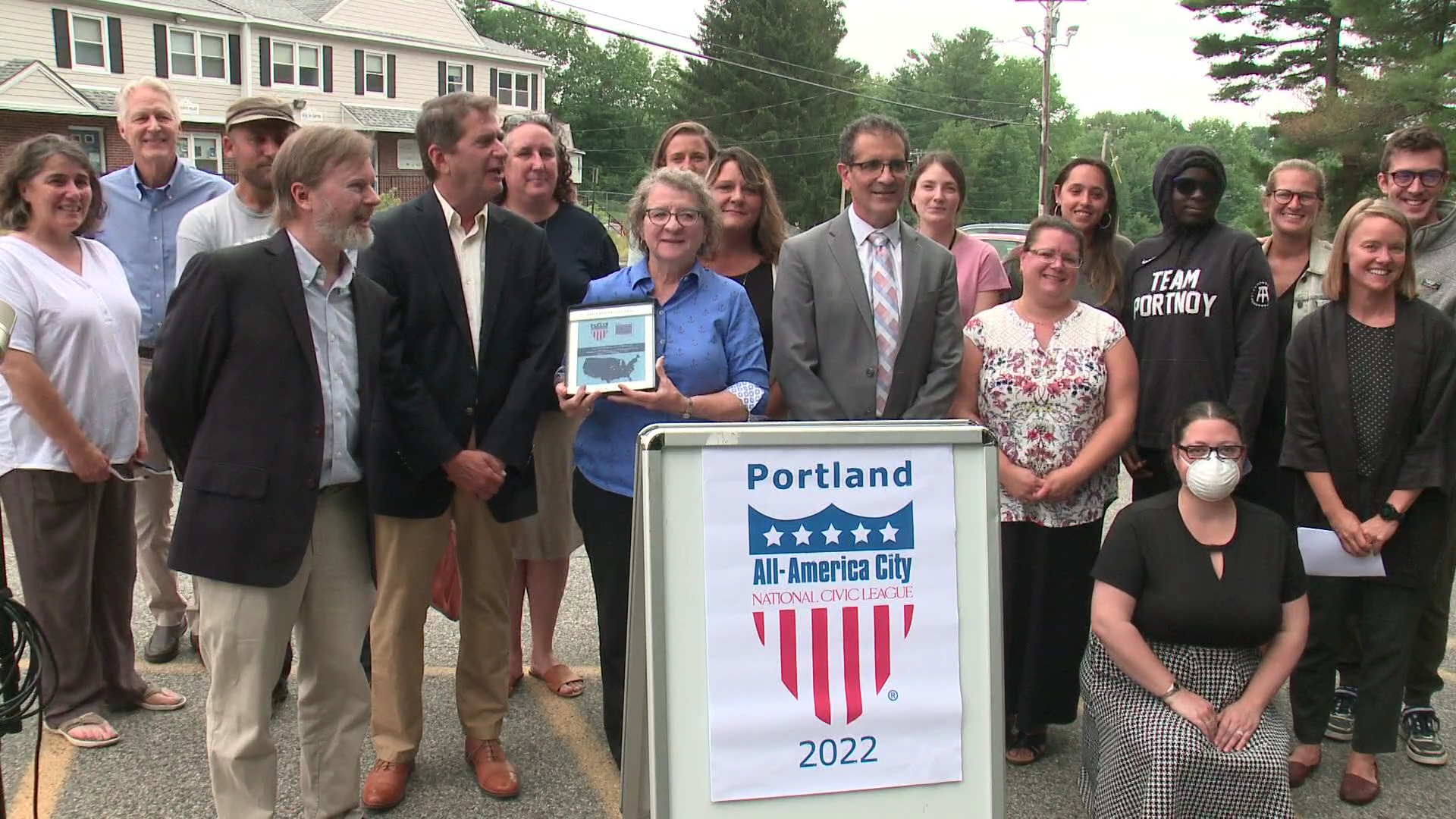 The Study Centers are part of a broader effort to support school success across Portland Housing sites and among partners. One of the larger housing communities houses a Head Start center, providing high-quality early childhood education and wraparound supports on-site and within walking distance for families. Several public housing communities also host program sites of the Boys & Girls Clubs, which provide after-school and summer programming designed to prevent learning loss.
The Study Centers are part of a broader effort to support school success across Portland Housing sites and among partners. One of the larger housing communities houses a Head Start center, providing high-quality early childhood education and wraparound supports on-site and within walking distance for families. Several public housing communities also host program sites of the Boys & Girls Clubs, which provide after-school and summer programming designed to prevent learning loss.
During the pandemic, these programs became even more vital, so Portland Public Schools, with the support of Portland ConnectED, Portland Housing Authority and a host of community organizations, built a plan to offer free child care and program sites for students to access on their remote days. Ultimately, Portland Public Schools launched 13 sites to provide safe spaces to support kids as they accessed remote learning.
Promoting School Readiness, Regular Attendance and Summer Learning
Background: COVID-19 has exposed and exacerbated many underlying issues that affect the academic trajectories of children in families with limited incomes and impede their opportunity to reach early literacy and math milestones. Mobilized communities must collaborate with cross-sector partners, including PHAs and affordable housing organizations, to ensure that fewer children start school so far behind, to reduce chronic absence and to reverse the summer slide.
Spotlight: Palacios, Texas
Through community outreach and collaboration, the Palacios Hub offers a variety of educational services to Palacios families of all racial and socio-economic backgrounds.
Palacios’ LitCamp uses a scholastic framework to stop the “summer slide.” LitCamp is a breakthrough literacy program that combines innovative lessons with an engaging and interactive summer camp approach. In 2021, the program helped 25 students make reading, writing and social-emotional gains.
Palacios is making sure children are ready for kindergarten through the Early Childhood Intervention (ECI) program that serves families with children birth to age 3. When early signs of developmental delays or possible disabilities that may impact development are detected, families are referred to ECI, which connects them with specialists and therapists.
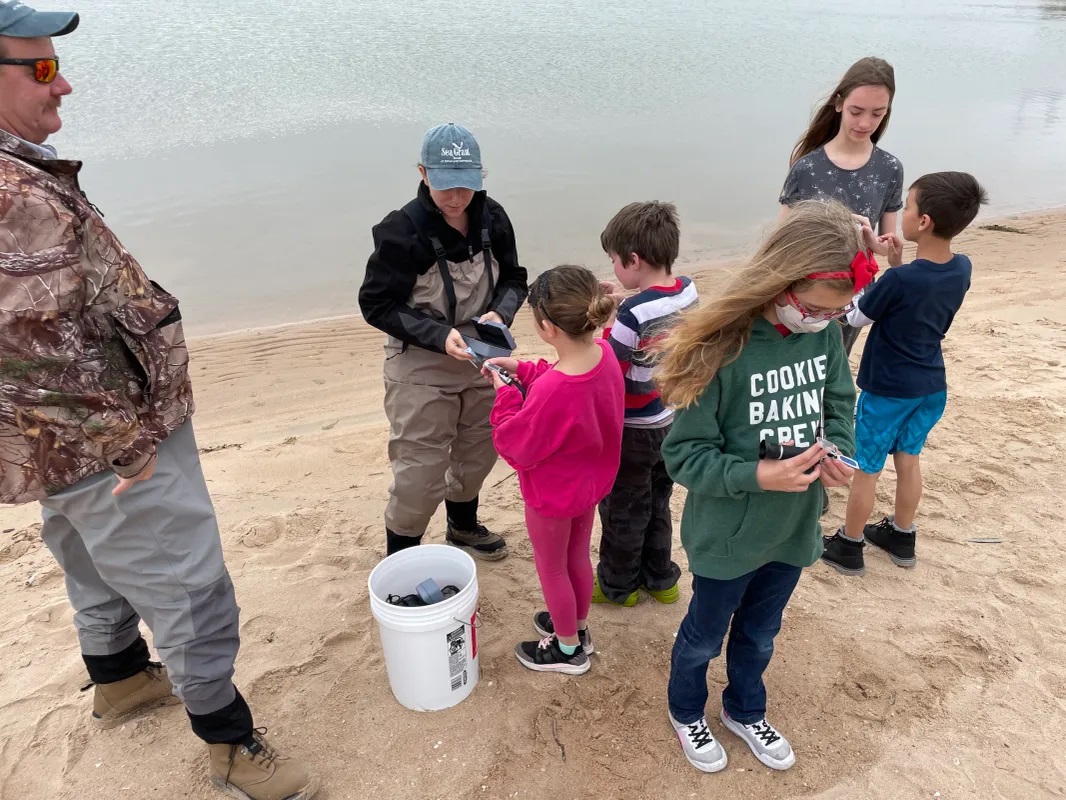 To help tackle the challenge of students not having the skills to be successful in elementary school and not reading on grade level by third grade, First Book Matagorda (FBM) County provides new books, learning materials and other essentials to children in need. Since opening in 2003, FBM has served 40,000 children and provided 190,000 books.
To help tackle the challenge of students not having the skills to be successful in elementary school and not reading on grade level by third grade, First Book Matagorda (FBM) County provides new books, learning materials and other essentials to children in need. Since opening in 2003, FBM has served 40,000 children and provided 190,000 books.
The City by the Sea Museum believes that all children should have access to quality educational experiences outside of school. The museum partnered with the Hub and local housing authority to offer scholarships to children and families in need to access programming that explores Palacios’ unique coastal environment.
Spotlight: Suncoast Region, Florida
The Community Foundation of Sarasota County (CFSC) and Suncoast Campaign for Grade-Level Reading (SCGLR) partnered with the Sarasota Housing Authority to develop and implement several initiatives to support various summer, after-school and out-of-school learning opportunities.
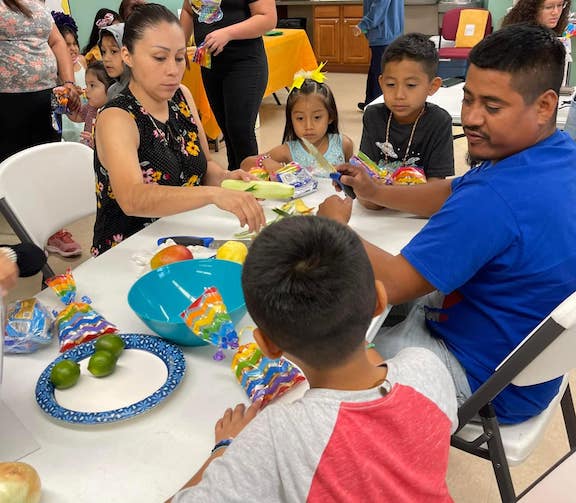
- The Suncoast Summer Reading Challenge encourages pre-K and elementary school students to read at least six books of the appropriate reading level to avoid the “summer slide.” The program provides parents with reading tips to help their children complete the challenge, as well as 20 books for their home lib Through Summer Learning Academies — a six-week academic and enrichment summer program — and the Sarasota Summer Reading Challenge, more than 9,000 students benefited from summer learning programming.
- With Stronger Me, Stronger We, SCGLR invests in communities through virtual small groups that seek to increase literacy by connecting children and families to educational resources. These connections develop a sense of solidarity and community among families and children as they progress in their literacy journeys. Through five one-hour guided conversations, community members gain skills to improve their ability to be present with their family and community.
- Kindergarten readiness bags provide learning support for incoming kindergartners in the months before school begins. Bags include flashcards, literacy charts, paper, crayons, readiness checklist, books and more. In 2021, 6,100 bags were distributed.
Parents Succeeding as Essential Partners in Assuring the Healthy Development and Early School Success of Their Children
Background: Parents are their children’s first teacher, brain builder, tech navigator, advocate and coach. Parents can best prepare children for school, establish good school attendance habits, prevent summer learning loss and support impactful online learning, especially during times where on-site education is not possible. Equipping parents to succeed as essential partners in assuring the healthy development and early school success of their children serves as an important accelerator for equitable learning recovery.
Spotlight: Barberton, Ohio
The Akron Metropolitan Housing Authority (AMHA) focuses on more than just housing. AMHA is devoted to the educational success of residents and begins preparing Barberton children for kindergarten prenatally. AMHA’s Early Childhood Initiative (ECI) offers a continuum of early childhood services proven to increase parent engagement, healthy child development and school readiness and success. Using a two-generation approach, ECI collaborates with parents to focus on their own personal and economic goals.
ECI offers a continuum of family-focused programming including home visitation using the nationally recognized Parents as Teachers (PAT) model for families with children ages prenatal through kindergarten. PAT is an evidence-based home visiting model that matches caregivers with trained professionals who make regular home visits during a child’s earliest years in life.
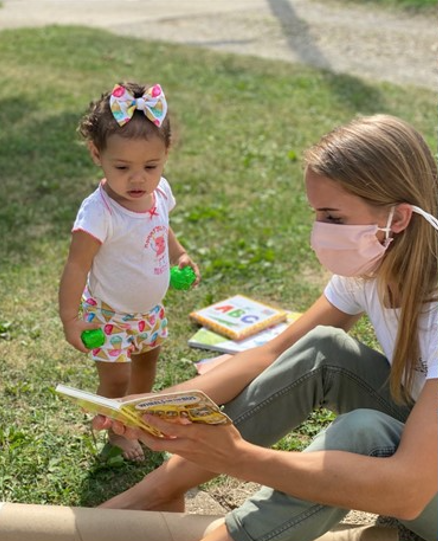 Additionally, AMHA offers the Supporting Partnerships to Assure Ready Kids (SPARK) kindergarten readiness program for families with preschool-age children. SPARK families meet with their assigned home visitor, who helps the parent engage in a lesson developed around state standards and designed to provide a school readiness advantage. At each visit, SPARK home visitors give a book, an activity card and supplies to the family so the parent can continue the learning process between visits.
Additionally, AMHA offers the Supporting Partnerships to Assure Ready Kids (SPARK) kindergarten readiness program for families with preschool-age children. SPARK families meet with their assigned home visitor, who helps the parent engage in a lesson developed around state standards and designed to provide a school readiness advantage. At each visit, SPARK home visitors give a book, an activity card and supplies to the family so the parent can continue the learning process between visits.
Both PAT and SPARK conduct developmental screenings and facilitate referrals and linkages to community resources. The SPARK team participates in monthly meetings that focus on a team approach of wraparound services concentrating on the child’s development and preparation for kindergarten. Both PAT and SPARK prioritize assisting families with getting their children enrolled in high-quality preschool and/or child care.
Parents Succeeding in Their Own Journey Toward Sustainable Self-Sufficiency
Background: Through leveraging partnerships and cross-sector collaborations, public and affordable housing organizations can support the next generation by improving economic opportunities for their parents. Solutions include, but are not limited to: two-gen or whole family focused interventions and programming; adult literacy initiatives; wraparound economic supports for struggling families; innovations and partnerships that build bridges between housing entities, colleges, universities or trade schools, and/or workforce development agencies; and financial literacy, upskilling and workforce development programs designed to help lift families up and ensure basic needs are met to promote equitable economic recovery and resilience.
Spotlight: San Antonio, Texas
In 2012, San Antonians approved the Pre-K 4 SA sales tax, which has four key components: high-quality pre-kindergarten schools; free professional development for early education instructors; competitive grants to expand full-day pre-kindergarten while improving the quality of existing programs; and family engagement. Since that time, PreK 4 SA alumni tracked in the third grade have improved school attendance, reduced grade repetition, and posted achievement test scores above state averages, with the most profound impact shown in economically disadvantaged children of color.
Unfortunately, San Antonio remains the poorest major metro area in the United States, with one in four local children living in poverty as of 2021. City leaders realized focusing on early childhood was a good start, but it wasn’t enough. The city and its partners decided to focus on addressing the barriers keeping whole families from moving forward, one being jobs.
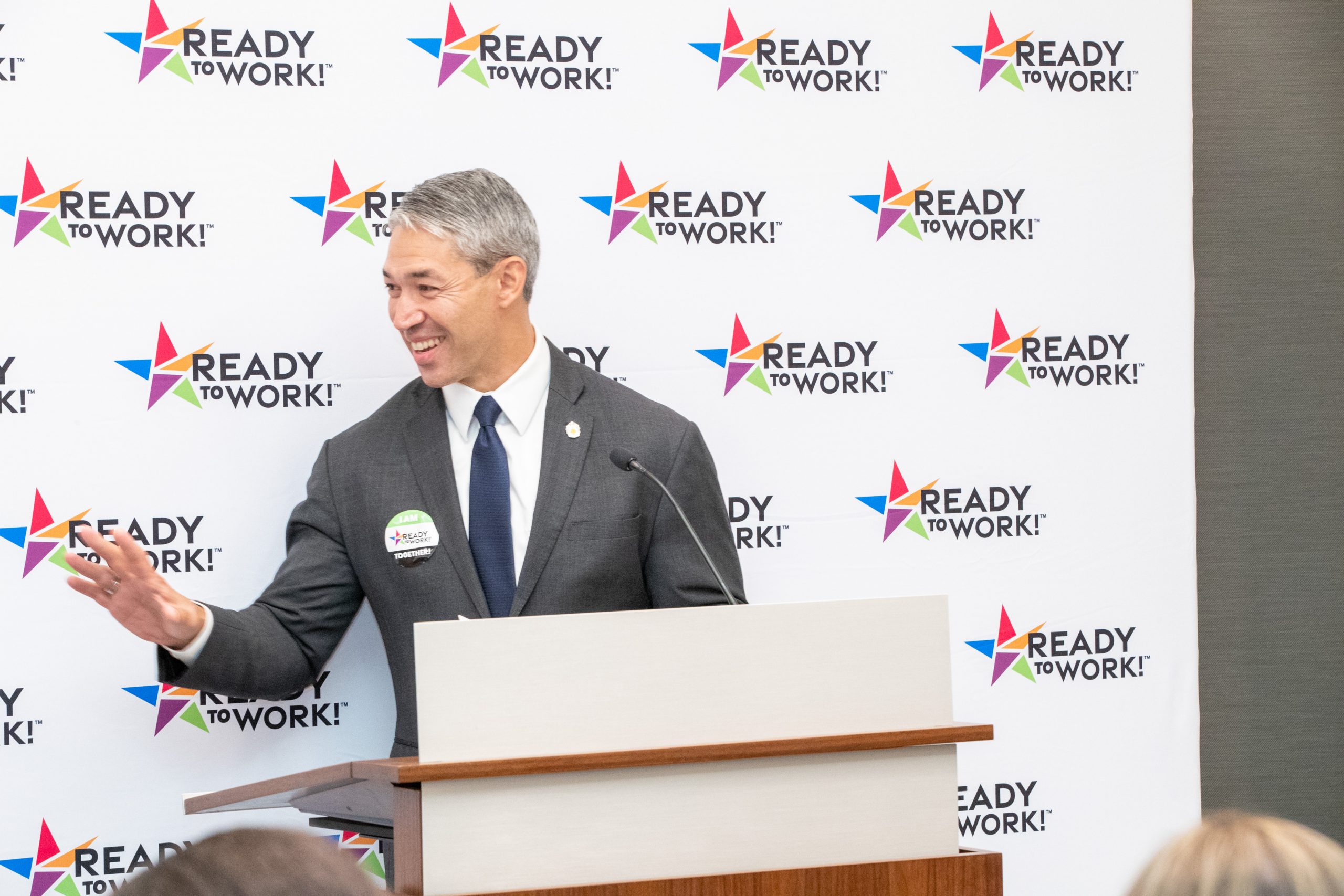 In November 2020, city voters passed 1/8th cent sales tax to fund SA Ready to Work, a $200 million program offering low-income residents the opportunity to pursue high-paying careers in high-demand occupations. SA Ready to Work covers the cost of tuition for industry-recognized certifications and associate and bachelor’s degrees. Training is offered for up to four years with wraparound support to increase retention and completion rates; participants also receive both job placement and retention supports in more than 120 businesses committed to hiring graduates.
In November 2020, city voters passed 1/8th cent sales tax to fund SA Ready to Work, a $200 million program offering low-income residents the opportunity to pursue high-paying careers in high-demand occupations. SA Ready to Work covers the cost of tuition for industry-recognized certifications and associate and bachelor’s degrees. Training is offered for up to four years with wraparound support to increase retention and completion rates; participants also receive both job placement and retention supports in more than 120 businesses committed to hiring graduates.
By 2025, SA Ready to Work will have trained and placed 28,000 lower-income San Antonians in high-demand occupations, lifting a commensurate number of families out of poverty. PreK 4 SA and Head Start are available to SA Ready to Work enrollees to eliminate childcare access as a barrier to participation and ensure both generations have the opportunity to move ahead.
Spotlight: Louisville, Kentucky
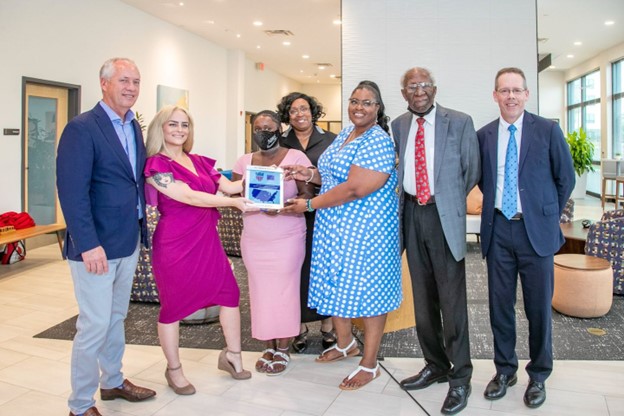 Louisville’s work to advance this area of focus is evident at neighborhood, property, and family levels. The city’s Choice Neighborhoods Initiative (CNI), quarterbacked by the Louisville Metro Housing Authority (LMHA), leverages public and private dollars to comprehensively support the Russell Neighborhood, which includes the Beecher Terrace public housing development. Within Beecher Terrace, the CNI team collected baseline data around kindergarten readiness and reading and math proficiency, with programs and resident engagement designed to support children to meet early learning milestones.
Louisville’s work to advance this area of focus is evident at neighborhood, property, and family levels. The city’s Choice Neighborhoods Initiative (CNI), quarterbacked by the Louisville Metro Housing Authority (LMHA), leverages public and private dollars to comprehensively support the Russell Neighborhood, which includes the Beecher Terrace public housing development. Within Beecher Terrace, the CNI team collected baseline data around kindergarten readiness and reading and math proficiency, with programs and resident engagement designed to support children to meet early learning milestones.
Additionally, during 2021, the Louisville Metro Housing Authority served 201 parents in its Family Self-Sufficiency (FSS) Program. FSS participants receive intensive case management services and financial literacy education, as well as assistance in returning to school and finding and maintaining employment. As FSS participants increase their earned income, money is added to an escrow savings account. During the same period, 33 FSS participants completed the program and received an average of $11,286 from their escrow accounts. At the end of 2021, 105 of the 201 FSS participants were employed, with 77 employed full time. Thirty-eight of the full-time employees had been in the same job for one year or longer. The average annual income of all those employed was $26,400.
Learnings and Takeaways
CGLR and the National Civic League commend and celebrate all 20 finalists and the 10 winning communities of the All-America City Award for work to improve prospects for early school success and equitable learning recovery for their most vulnerable children and families using housing as a platform. Across the 10 winners, the following themes emerged as common qualities and characteristics:
Willingness to think broader and deeper around cross-sector collaboration. Represented across the winning communities were libraries, school districts, colleges, internet providers, nonprofit partners, city government departments and resident leaders, among others. The ability of local efforts to measurably move the needle on early school success and equitable learning recovery is closely tied to weaving and braiding these entities together into a more holistic solution.
Meaningful co-ownership by parents and community residents. A differentiator among the winning communities was the authentic and intentional incorporation of the perspectives and opinions of those most impacted by these initiatives and programs. In some cases, these included the youth themselves, who served as champions and ambassadors.
Creative leveraging of existing assets, resources and relationships. PHAs and affordable housing organizations in winning communities utilized their physical assets, relationships with community partners and existing resident engagement vehicles to provide innovative solutions to support their youngest learners to advance child development and educational outcomes. This creativity extended beyond children to their parents and caregivers using a two-generation approach.
Intentional use of data to inform program design, ensure effective implementation and provide ongoing monitoring and evaluation. Quantitative data as well as qualitative feedback tools helped ensure that winning programs and initiatives were effectively meeting needs. A focused commitment to data also helped to measure the utilization of a service or partnership, gave partners a tool to share information and make program changes where needed, and evaluate lagging indicators such as improvements in academic performance.
Commitment to equity, including racial equity, and providing opportunity for marginalized and economically disadvantaged children and families. Each of the winning communities demonstrated a focus on the needs of underserved individuals, including children of limited economic means who are disproportionately people of color. These communities share a common goal of reducing a widening academic gap between these children and their more affluent peers, and, ultimately, disrupting generational poverty.
Looking Forward to AAC 2023
Continuing a focus on youth well-being, the 2023 All-America City Award will recognize communities that are working to improve the lives of young people, with particular attention to efforts that engage young people in this work. Democracy thrives when all residents are active and engaged in the policies and decisions that shape their lives. The 2023 awards seek to identify communities that are breaking down barriers to meaningful youth participation and enacting programs that will improve quality of life for youth, and, by extension, all members of the community. Learn more and apply here.
Jill Fioravanti is Senior Consultant for the Campaign for Grade-Level Reading.
Rebecca Trout is Program Director of the All-America City Award & Communications at the National Civic League.



